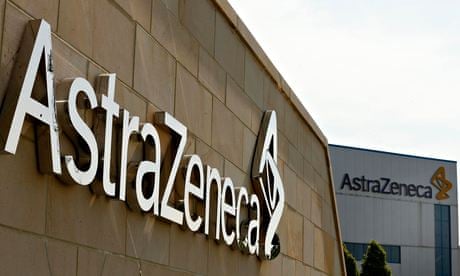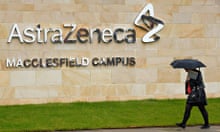Pfizer has abandoned its attempt to buy British drugmaker AstraZeneca in the face of opposition from UK politicians, scientists and its target's boardroom.
Shortly before it reached a 5pm "put up or shut up" deadline on Monday to turn its £69bn approach into a formal bid, Pfizer bowed to the inevitable and conceded that its campaign to create the world's largest pharmaceutical business had failed.
The US group's chief executive, Ian Read, insisted that AstraZeneca had been offered a fair price at £55 a share – a figure that was rejected on 19 May as undervaluing the business.
"We continue to believe that our final proposal was compelling and represented full value for AstraZeneca based on the information that was available to us," said the British-born executive.
Having declared its £55 approach as final, Pfizer was unable to increase its offer under Takeover Panel rules, unless AstraZeneca shareholders forced the board to change its mind. However, investors failed to present a united front on the deal although a number of major shareholders expressed disappointment at the refusal of the AstraZeneca board to open formal discussions with Pfizer over the approach. AstraZeneca's share price, which has risen during the last six months of takeover talk, closed at £42.28 on Friday.
Under UK takeover rules, Pfizer cannot renew its advances for six months, although AstraZeneca could choose to initiate talks in three months' time.
Leif Johansson, AstraZeneca's chairman, said: "We welcome the opportunity to continue building on the momentum we have already demonstrated as an independent company. We are fully focused on the delivery of our strategy. We have attractive growth prospects and a rapidly progressing pipeline."
Although Johansson spoke of the long-term prospects for AstraZeneca, last week he said the board would consider an offer of £58.85 a share. Some shareholders, including AstraZeneca's largest investor, BlackRock asset management, have been urging the board to restart talks as soon as possible.
The UK's largest trade union voiced fears that Pfizer could be back in as little as three months if AstraZeneca invites it to re-start talks.
"The government needs to use this time to intervene and put a public interest test in place for proposed takeovers of this size, just as other government's do, such as the French which has strengthened its powers to act to protect strategic industries," said Unite's assistant general secretary, Tony Burke.
"AstraZeneca's workforce expects shareholders to stand firm, respect their responsibilities and back the board's long term strategy. The future of vital life sciences in the UK and improvements in health are so much more important than the desire of one company to minimise its tax liabilities and wrangles over drug patents."
Pfizer's bid for AstraZeneca roused public anger on both sides of the Atlantic after the US firm admitted that tax savings were a key factor. Under a successful takeover, Pfizer would have relocated its tax base to the UK in order to escape the US's higher rate of corporation tax.
Amid doubts over its motives, the American group's five-year guarantees on preserving British jobs, which included ensuring that 20% of the research and development workforce stays in the UK, were dismissed by politicians and leading scientists as inadequate.
David Cameron said he was "neutral" about the proposed bid, which has brought accusations from Labour that the government has acted as a cheerleader for Pfizer. George Osborne has viewed the deal as an endorsement of a business-friendly tax regime which includes a tax break for drugs developed in the UK.
Reacting to Pfizer's decision to walk away, Labour's shadow business secretary, Chuka Umunna, vowed on Monday that a Labour government would strengthen a public interest test to better protect Britain's science base. Under current rules ministerial intervention is restricted to issues of national security, media plurality and financial stability.
"While Labour was standing up for British jobs and British science throughout this takeover bid, David Cameron and his ministers were cheerleading for it when one of the primary motivations behind the deal was financial engineering," said Umunna.
AstraZeneca's chief executive, Pascal Soriot, had warned that the takeover could endanger lives of cancer patients by delaying the development of new drugs. Soriot, who will showcase AstraZeneca's new pipeline of cancer drugs at a key industry conference on Friday, will now be under pressure to show shareholders that AstraZeneca can thrive as a stand-alone company.







Comments (…)
Sign in or create your Guardian account to join the discussion